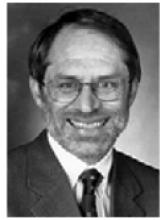User login
September 11, 2001. I first learned the news during our departmental leadership meeting. Like the day President Kennedy was assassinated, this date and the images of the horrific assaults in New York, Washington, and Pennsylvania are burned into the American psyche. The subsequent spread of anthrax-laden letters heightened concerns that our health system was ill-equipped to deal with new global challenges to the public’s wellbeing. And most recently, a worldwide outbreak of a new respiratory illness, SARS, has shown the potential for rapid spread of a potentially fatal infectious disease.
Most physicians don’t need to be convinced that public health is of increasing importance to society. In addition to our daily battles with sexually transmitted disease, tuberculosis, and counseling vacation-goers preparing for a cruise, we are challenged to keep up with the latest immunization guidelines, preventive services recommendations, and even the definition of hypertension.
Against this backdrop, The journal of family practice is initiating a new feature—Practice Alert (“New JFP series on timely clinical issues,” pages 526–527 and “SARS: Lessons learned thus far,” pages 528–530)—that will address the intersection between medicine and public health. I trust this feature will be both practical and thought-provoking. As always, your feedback is greatly appreciated.
September 11, 2001. I first learned the news during our departmental leadership meeting. Like the day President Kennedy was assassinated, this date and the images of the horrific assaults in New York, Washington, and Pennsylvania are burned into the American psyche. The subsequent spread of anthrax-laden letters heightened concerns that our health system was ill-equipped to deal with new global challenges to the public’s wellbeing. And most recently, a worldwide outbreak of a new respiratory illness, SARS, has shown the potential for rapid spread of a potentially fatal infectious disease.
Most physicians don’t need to be convinced that public health is of increasing importance to society. In addition to our daily battles with sexually transmitted disease, tuberculosis, and counseling vacation-goers preparing for a cruise, we are challenged to keep up with the latest immunization guidelines, preventive services recommendations, and even the definition of hypertension.
Against this backdrop, The journal of family practice is initiating a new feature—Practice Alert (“New JFP series on timely clinical issues,” pages 526–527 and “SARS: Lessons learned thus far,” pages 528–530)—that will address the intersection between medicine and public health. I trust this feature will be both practical and thought-provoking. As always, your feedback is greatly appreciated.
September 11, 2001. I first learned the news during our departmental leadership meeting. Like the day President Kennedy was assassinated, this date and the images of the horrific assaults in New York, Washington, and Pennsylvania are burned into the American psyche. The subsequent spread of anthrax-laden letters heightened concerns that our health system was ill-equipped to deal with new global challenges to the public’s wellbeing. And most recently, a worldwide outbreak of a new respiratory illness, SARS, has shown the potential for rapid spread of a potentially fatal infectious disease.
Most physicians don’t need to be convinced that public health is of increasing importance to society. In addition to our daily battles with sexually transmitted disease, tuberculosis, and counseling vacation-goers preparing for a cruise, we are challenged to keep up with the latest immunization guidelines, preventive services recommendations, and even the definition of hypertension.
Against this backdrop, The journal of family practice is initiating a new feature—Practice Alert (“New JFP series on timely clinical issues,” pages 526–527 and “SARS: Lessons learned thus far,” pages 528–530)—that will address the intersection between medicine and public health. I trust this feature will be both practical and thought-provoking. As always, your feedback is greatly appreciated.
